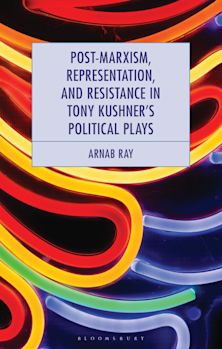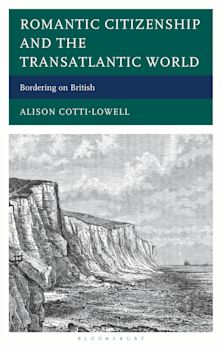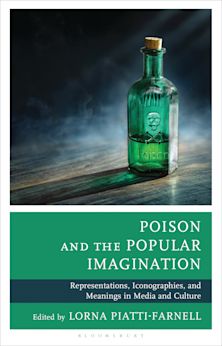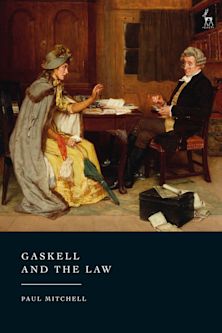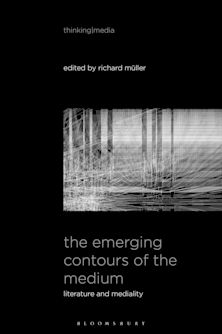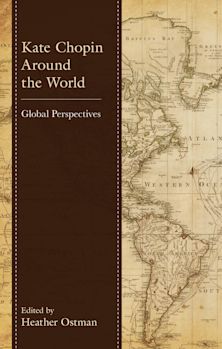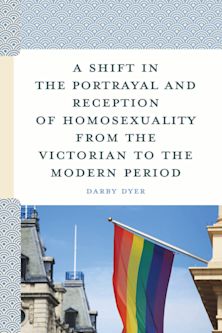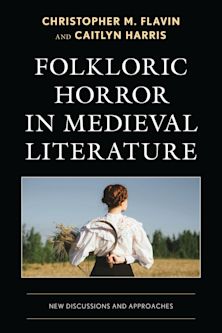- Home
- ACADEMIC
- Literary Studies
- Literary Studies - Other
- (In)fusion Approach
(In)fusion Approach
Theory, Contestation, Limits
Ranjan Ghosh (Anthology Editor) , Vikram Chandra (Contributor) , J Hillis Miller (Contributor) , Gayatri Chakravorty (Contributor) , Ben Baer (Contributor) , Homi Bhabha (Contributor) , Grant Farred (Contributor) , Kenneth Womack (Contributor) , Paul Jahshan (Contributor) , Bill Ashcroft (Contributor) , Stephen Morton (Contributor) , Dorota Kolodziejczyk (Contributor) , Adam Muller (Contributor) , Claire Chambers (Contributor) , James M. Ivory (Contributor) , David Lorne Macdonald (Contributor) , Sangeeta Ray (Contributor) , Pushpa N. Parekh (Contributor) , Maria Sofia Pimentel Biscaia (Contributor) , David Mesher (Contributor) , Cara Cilano (Contributor) , Dora Sales Salvador (Contributor) , Ryan Mowat (Contributor) , Joanne Trevenna (Contributor) , Amy Lee (Contributor) , Sumana Roy (Contributor)
(In)fusion Approach
Theory, Contestation, Limits
Ranjan Ghosh (Anthology Editor) , Vikram Chandra (Contributor) , J Hillis Miller (Contributor) , Gayatri Chakravorty (Contributor) , Ben Baer (Contributor) , Homi Bhabha (Contributor) , Grant Farred (Contributor) , Kenneth Womack (Contributor) , Paul Jahshan (Contributor) , Bill Ashcroft (Contributor) , Stephen Morton (Contributor) , Dorota Kolodziejczyk (Contributor) , Adam Muller (Contributor) , Claire Chambers (Contributor) , James M. Ivory (Contributor) , David Lorne Macdonald (Contributor) , Sangeeta Ray (Contributor) , Pushpa N. Parekh (Contributor) , Maria Sofia Pimentel Biscaia (Contributor) , David Mesher (Contributor) , Cara Cilano (Contributor) , Dora Sales Salvador (Contributor) , Ryan Mowat (Contributor) , Joanne Trevenna (Contributor) , Amy Lee (Contributor) , Sumana Roy (Contributor)
This product is usually dispatched within 3 days
- Delivery and returns info
-
Free US delivery on orders $35 or over
You must sign in to add this item to your wishlist. Please sign in or create an account
Description
Opposing all claims that theory has come to an end, this book presents a fresh perspective on our reading, understanding, and application of theory and its affect on our interpretation of texts. (In)fusion theory challenges efforts to see theory as inhibiting by presenting an approach that is innovative, eclectic, and subtle in order to draw out competing and constellating ideas and opinions. This collected volume of essays examines (In)fusion theory and demonstrates how the theory can be applied to the reading of various works of Indian English novelists such as Salman Rushdie, Amitav Ghosh, Anita Desai, and Vikram Seth.
Table of Contents
Part 2 I. (In)fusion Approach: The Critical Manifesto
Part 3 II. (In)fusion Approach: Theory, Contestation, Limits: 'Thinking' Text and (In)fusion Theory; Postcoloniality, Reading, and Theory; The Ethics of (In)fusion; Cyberspace: (Im)porting (In)fusion Theory; Post-colonial Horizon
Part 4 III. (In)fusionizing a Few Indian English Novels: The Epigon Coming the First: Midnight's Children as the Postmodern Authentic; Taking "Experience" Seriously in Anita Desai's The Village By the Sea; "Tents blooming in the coconu
Part 5 IV. Epilogue
Chapter 6 Writing, Indian English Literature and (In)fusion
Chapter 7 Index
Chapter 8 About the Contributors
Chapter 9 About the Editor
Product details
| Published | Sep 11 2006 |
|---|---|
| Format | Paperback |
| Edition | 1st |
| Extent | 352 |
| ISBN | 9780761834656 |
| Imprint | University Press of America |
| Dimensions | 9 x 6 inches |
| Publisher | Bloomsbury Publishing |
About the contributors
Reviews
-
We have heard about the death of theory for a decade, but of course the real question is what are the possibilities of theory now. This volume, with its sterling cast of contributors, offers some answers. It argues for a programmatic heterogeneity, fusing theories without disciplinary prejudice.
Jeffrey J. Williams, Editor, Editor,The Minnesota Review; Co-Editor The Norton Anthology of Theory and Criticism
-
Theory has always been interdisciplinary in its aims and purposes. But with the proliferation of Theory in the last decades, theories tended to degenerate into mere variants of the outmoded disciplinary approaches. So what we presently need, above all, is an interdisciplinary approach to Theory. This is what the (In)fusion paradigm proposed in this volume admirably realizes. It does so not only by means of theoretical reflection, but by also giving convincing examples of what the new paradigm may bringgg
Frank Ankersmit, Groningen University
-
Theory has always been interdisciplinary in its aims and purposes. But with the proliferation of Theory in the last decades, theories tended to degenerate into mere variants of the outmoded disciplinary approaches. So what we presently need, above all, is an interdisciplinary approach to Theory. This is what the (In)fusion paradigm proposed in this volume admirably realizes. It does so not only by means of theoretical reflection, but by also giving convincing examples of what the new paradigm may bring
Frank Ankersmit, Groningen University












